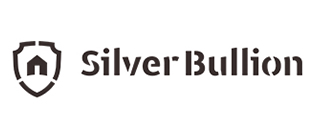Philippines’ Gold Market
By Elvis Chou, Senior Consultant, Metals Focus

Introduction
Bangko Sentral ng Pilipinas (BSP), the central bank of the Philippines, is the only agency that purchases and exports gold from miners in the country. In addition, BSP is an LBMA accredited gold refiner, and also holds 196 tonnes of gold in its reserves, which represents 8.8% of the country’s total gold reserve (IFS, January 2017)
According to Metals Focus, mine production in the Philippines was 42 tonnes, and recycling was 2 tonnes in 2016.
The Philippines is one of the leading producers of gold in ASEAN. According to Metals Focus, mine production in the Philippines was 42 tonnes, and recycling was 2 tonnes in 2016. It is estimated that about 200,000 to 300,000 people work in small-scale gold mines in the country. However, some of these mines do not meet BSP’s responsible gold sourcing policy standards. As a result, the tracking of the production of small-scale mines in the country is not properly in place, so gold produced by these mines are exported out of the country without a trace.
In addition to the BSP’s official market, there are also pawnshops and street jewellery shops that buy or sell gold, but many of them may not be reliable, so it is not advisable to patronise such shops unless you know them.
According to the Bureau of Internal Revenue, 2% Excise Tax and 5% Creditable Withholding tax shall be paid by a trader.
The sections below set out the guidelines of BSP’s Gold Buying Program, Responsible Gold Sourcing Policy and Gold Selling Program, which can also be found online.
BSP Gold Buying Program
The BSP purchases gold from small-scale miners in accordance with the Republic Act No. 7076 (People’s Small Scale Mining Act of 1991) and from other sources. It then refines the gold purchased to forms acceptable in the international bullion markets.
The BSP has five existing buying stations located in Quezon City, Baguio City, Davao City, Zamboanga City, and Naga City.
GUIDELINES – BSP GOLD BUYING PROGRAM
-
Gold may be sold to the Bangko Sentral ng Pilipinas (BSP) through its buying stations in the Department of General Services (DGS) in the Security Plant Complex, Quezon City and in the Bangko Sentral regional offices in Davao City (BSRO-Davao), Zamboanga City (BSRU-Zamboanga), Baguio City (BSRU-Baguio) and Naga City (BSRU-Naga).
-
The BSP shall purchase the refined gold in Philippine pesos (PHP), at the prevailing international gold market price and prevailing PHP / USD exchange rate set by the BSP Treasury Department on a daily basis.
-
Gold traders / residents intending to sell their gold to the BSP shall address and present to the Office of the Director, DGS (if sold to the DGS buying station) or to the Office of the Regional Administrator (if sold to the regional buying stations), their “Letter of Delivery and Sale” clearly indicating that the gold is offered for sale for value on the date of delivery and must be received not later than 2:00 p.m. of the advice date.
Notes:- Forms of the “Letter of Delivery and Sale” shall be provided by BSP.
- Xerox or other reproduced copies shall not be allowed / accepted.
-
Requirements for Acceptance:
- Physical Form
- Bar or disc (powder is not accepted).
- Should not contain mercury or amalgam in any quantity.
- Free of slag or other foreign matter.
- No sign of metallic segregation / layering or poured shortness.
- Should not be damp or wet.
- Maximum Dimensions
- Bar: 16.5 cm (6.5”) long x 8 cm (3”) wide x 4 cm (1.5”) thick
- Disc: 10 cm (4”) diameter x 5 cm (2”) thick maximum
- Weight
- Maximum weight per bar or disc shall be approximately 160 tr. oz. (@ 5 kg.)
- Maximum weight per lot shall be approximately 320 Tr. Oz. (@ 10 kg.)
- Minimum Preliminary Gold Assay – 30%
- For first time sellers – Accomplishment of Specimen Signature Card with picture and name/s of authorized representative/s.
- Payment Scheme:
- Initial payment equivalent to 99% of the value of the delivery based on as-received weight and preliminary assay by specific gravity method less the 2% Excise Tax and the 5% Creditable Withholding tax shall be paid the following business day after date of delivery / sale, depending on the volume of purchase.
- Final settlement of the balance shall be paid upon completion of evaluation melting and final assay or within thirty (30) calendar days from date of delivery / sale, depending on the volume of purchase.
- Physical Form
- Deductions (processing cost and metal recovery factors) shall be applied in accordance with the following schedule:
| Bar Assay Fineness | Processing Cost**(PHP/oz. of material received) | Metal Recovery Factor |
| 995 and above | 34.00 | 99.80% |
| 900 to less than 995 | 37.77 | 99.30% |
| 700 to less than 900 | 39.37 | 99.00% |
| 500 to less than 700 | 42.17 | 98.90% |
| 300 to less than 500 | 45.67 | 98.60% |
Silver Recovery – 97% for assay of 1% and higher; no recovery for assay below 1%
** Minimum charge of PHP 1,600.00 per delivery
Source: Bangko Sentral Ng Pilipinas (http://www.bsp.gov.ph/bspnotes/bspgold.asp).
BSP Gold Buying Stations
| GBS BAGUIO | RCBC Building, Session Road, Baguio City (074) 4449512 |
| GBS DAVAO | BSP Davao Regional Office, Quirino Avenue, Davao City (082) 2279051 local 225 and 229 |
| GBS NAGA | BSP Naga Regional Office, Roxas Avenue, Diversion Road, Naga City (054) 473.9073 |
| GBS ZAMBOANGA | LMS Building I, Veterans Avenue, Zamboanga City (062) 991.0146 |
| GBS QUEZON CITY | Security Plant Complex, East Avenue, Quezon City (02) 925.7179 and (02) 929.7071 loc 337 |
BSP’s Responsible Gold Sourcing Policy
Declaration of Policy
The BSP commits to ensure that the source of its gold products complies with the standards set forth by the London Bullion Market Association (LBMA) with the ultimate goal of building customer trust.
Coverage
The BSP shall conduct gold transactions with small-scale miners, gold-panners, gold traders and/or sellers, referred to in this policy as “gold-supplying counterparties”, who comply with the BSP Responsible Gold Sourcing Policy.
Responsibilities
The BSP shall:
- Buy its gold only from known sources and areas that have not used gold to finance any form of crime or conflict, terrorism, human rights violations, and money laundering activities.
- Suspend or discontinue transacting with gold-supplying counterparties identified as operating in contravention of this policy.
- Adhere to the laws and regulations against money laundering, any form of crime, human rights violations, and terrorism and its financing.
- Provide relevant training on this policy to involved BSP employees and sellers.
- Maintain a Quality Management System subject to audit by a third party certifying body.
Effectiveness
This Policy shall take effect on April 8, 2015.
London Bullion Market Association (LBMA) Assessment Report
LBMA Responsible Gold Certificate
Source: Bangko Sentral Ng Pilipinas (http://www.bsp.gov.ph/bspnotes/bspgold3.asp).
BSP Gold Selling Program
The BSP sells gold grains and sheets to local jewellery manufacturers and industrial users. The gold grains are packaged into 50 and 100 grams and may be purchased at the Department of General Services (DGS), BSP, East Avenue, Diliman, Quezon City. At present, gold sold is 24K and minimum assay is 99.5%.
PROCEDURES FOR PURCHASING GOLD
- Accomplish the following forms and present them to DGS:
- Application to Buy Gold for Jewellery Manufacturing and Industrial Purposes
- Authorization to buy gold from BSP.
- The DGS employee in charge of gold sales receives (date and time stamp, records) the application and computes the cost of gold to be purchased based on the BSP selling rate determined by the Treasury Department plus the applicable service fees and taxes.
- The buyer pays for the gold in the forms of cash, Cashier’s or Manager’s Check, or authorized/confirmed Debit of Demand Deposit of Banks to the teller.
- The buyer presents the official receipt to the DGS employee in charge of gold sales, who in turn releases the purchased gold to the buyer.
- Upon receiving the purchased gold, the buyer signs the Acknowledgement Receipt to complete the transaction.
Source: Bangko Sentral Ng Pilipinas (http://www.bsp.gov.ph/bspnotes/bspgold2.asp).
Conclusion
There is a growing middle-class in the Philippines, which has the potential to create more domestic demand for gold and other precious metals. However, gold investments are not as popular as other countries in the region. Additionally, the public’s taste for jewellery is very different from other Asean countries, and locals tend to purchase designer jewellery rather than high karat gold jewellery.
As one of the leading producers of gold in Asean, Philippines has a potential to grow further and become one of the region’s key distribution centres of gold.
Many small-scale mines are looking for a way around the current tax scheme and BSP’s stringent responsible gold sourcing policy, and many mine productions are not declared or registered. A change in the tax scheme or the creation of a proper gold market ecosystem might help grow actual mine production numbers in the future.
Economic Data (2015)
- Population: 101 million
- GDP growth: 5.8 %
- GDP per capita: US$2,877
- CPI: 1.5%
- Exports: US$59 billion
- Imports: US$67 billion
- Foreign reserves: US$81 billion
- Foreign debt: US$77 billion
Source: FOCUSECONOMICS
Links
Bureau of internal Revenue – https://www.bir.gov.ph/
Bangko Sentral Ng Pilipinas – http://www.bsp.gov.ph/


























